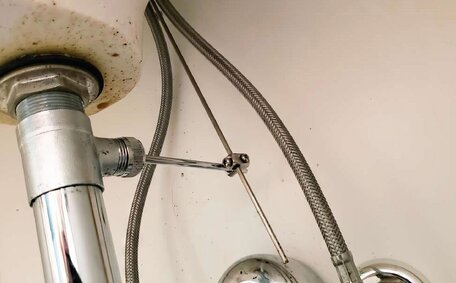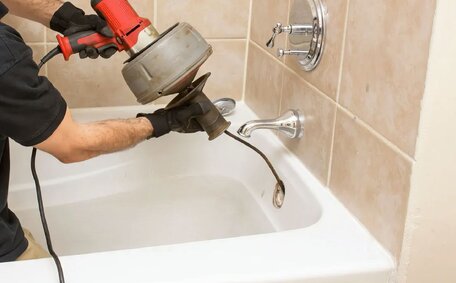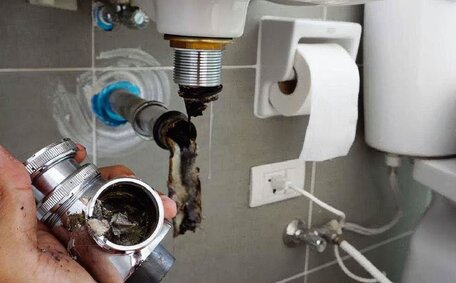Introduction to Hot Water System Regulations in Australia
Electric hot water systems, integral to Australian homes, come with scalding risks without proper regulation. Important safety laws and standards exist nationwide to ensure water heater systems are installed and maintained correctly, thus preventing accidents.
At Sans Souci Plumbing, we are fully versed in all regulations for hot water systems in New South Wales, and we’re always ready to provide more information. As experienced plumbers located in Sydney, we can advise you on legal requirements and best practises to keep your system operating safely. We also offer installation and maintenance services to help ensure ongoing compliance.
We elaborate on safety mechanisms like tempering valves and emphasise ideal temperatures to avoid scalding, along with legal installation procedures and maintenance essentials.
Key Safety Standards for Temperature and Scald Prevention
There are stringent safety standards in place across Australia regarding temperature hot water systems to prevent scalding accidents. All water heaters and plumbing systems must have a temperature control device, ensuring tap water doesn’t exceed 50°C. This temperature limit aims to keep water hot yet not cause severe risks to vulnerable groups like children and seniors.
Storage tanks should contain heated water between 60-70°C to prevent bacteria growth, but a tempering valve then blends in cold water when delivered to taps. This valve safely blends cold with hot water, reducing severe scalding risks from tap water.
Multiple temperature control devices are deployed to help manage the heat. The mixing valve automatically calibrates itself to yield a suitable temperature for use.
Other temperature mechanisms engage with the inclusion of tempering valves, solar controllers, or continuous flow limiters in your hot water system. Our skilled technicians at Sans Souci Plumbing can expertly install, repair, or replace these control devices to ensure your safety.
When installing or replacing your hot water system, Specific regulations and Australian Standards apply to plumbing, gasfitting, and electrical work during system installation. Upon becoming operational, every hot water unit needs regular maintenance to maintain safe temperatures and water quality, as per Australian regulations.
Licenced tradespeople understand the regulations to ensure installations meet all safety criteria. This includes locating access points safely.
We advise homeowners and property managers to regularly assess hot water safety within their properties. Simple precautions such as closing bathroom doors, testing tap temperatures, and alerting vulnerable individuals to the risks of scalding can prevent injuries, especially in settings where hot water temperature regulations are paramount.
Role and Importance of Tempering Valves
A thermostatic mixing valve is vital for safety, mixing hot and cold water to reduce scalding risks. They combine cold with hot water automatically to ensure hot tap water temperatures stay below 50°C, preventing scald injuries.
The Australian Standard AS 3498 mandates that tempering valves be installed in high-risk establishments such as schools, nursing homes, childcare centres, and hospitals. Here, temperatures must not be more than 50 degrees centigrade from taps.
By regulating temperatures, tempering valves ensure compliance with hot water regulations. They provide an efficient control mechanism that eliminates risks for vulnerable occupants without requiring behavioural changes.
Check whether your home’s new hot water system includes a tempering valve. While not mandated for residential settings, they provide affordable protection against scalds with a single install. Our team at Sans Souci Plumbing can assess your current safety set-up and advise whether installing a tempering valve would be beneficial.
Tap Water Temperature Requirements
There are clear legal requirements for tap water temperature limits to prevent scalding in Australian households. To safeguard groups such as young children, the maximum hot water temperature at any tap should not surpass 50°C.
Stricter temperature regulations apply for higher risk facilities like childcare centres, nursing homes and hospitals. In these settings, tap water temperatures must remain below 50°C to protect vulnerable individuals. Failing to adhere to these legal limits poses severe scalding dangers.
As experienced plumbers, Sans Souci Plumbing can help homeowners, landlords and property managers understand and meet hot water temperature regulations. We can install and maintain tempering valves or advise on adjustments if your tap water is testing too hot for safety.
By taking precautions such as advising children about hot water risks, fitting tap filters, or verifying that your system delivers appropriate temperatures, your household plumbing will align with Australian standards. Protect your family by proactively managing hot water safety.
Storage Tank Temperature Regulations
There are clear regulations regarding storage systems tank temperatures for hot water systems in Australian households. Stored water must be kept at 60°C or above to prevent bacteria growth, thus reducing any associated hot water dangers.
Temperature water between 60-70°C is hot enough to kill dangerous bacteria like Legionella which can proliferate at lower temperatures, posing health risks if consumed. Exceeding 70°C wastefully boosts energy usage with no added safety benefits.
This most common regulated range helps balance bacteria control and energy efficiency. Sans Souci Plumbing can incorporate digital thermometers and thermostats into electric or gas storage tanks during new installations or system replacements. This allows easy monitoring of storage temperatures to ensure household systems meet Australian Standards.
For solar heat pump water systems, we recommend installing tank sensors connected to primary controls. This helps sustain optimal temperatures automatically even when external conditions fluctuate.
Proactive monitoring and maintenance of storage tank temperatures prevents bacteria multiplication while maximising energy efficiency over time in line with Australian regulations.
Installation and Maintenance Regulations
There are important regulations around the installation and ongoing maintenance of hot water systems in Australia to uphold safety and performance.
Under Australian Standard AS/NZS 3500, every installation must be finalised by a licensed plumber to assure strict adherence to legal demands surrounding water system installation. This covers areas like waterproofing, drainage, gasfitting and code australia electrical as applicable.
Once installed, annual maintenance checks are recommended as leaks, corrosion and temperature fluctuation in instantaneous water heaters can lead to non-compliance over time. In Tasmania, there is even a legal requirement to register certain hot water systems and have them inspected annually as a condition of their permit.
At Sans Souci Plumbing, we are fully versed in all regulations to safely secure the system your hot water installation. We also offer maintenance services to keep your existing system operating safely for longer.
Preventative checks and repairs on elements like valves, anodes and seals prevent dangerous leaks and also enhance energy efficiency - avoiding more costly replacements or accidents down the track while abiding by Australian standards.
Permits and Certification Requirements
New water system installations may require plumbing permits in various situations across Australia. This includes installing a new system where one did not previously exist, or replacing an existing system with another fuel type, do need like switching from electric to gas.
Permits ensure qualified plumbers handle complex installs to meet regulations around areas like waterproofing, drainage and electrical or gasfitting components. Certified tradespeople understand safety standards and compliance requirements in their state.
It’s advisable to contact your local council about permit requirements for installing hot water systems. At Sans Souci Plumbing, our expert team assists customers through this process as part of new system installs. We highlight certification requirements and include all necessary paperwork to streamline approval.
Adhering to permit and certification regulations guarantees your new hot water system meets Australian Standards during initial installation, covering 100 per cent of compliance aspects. This sets up safe, reliable and energy efficient operation for years to come.
Location and Bracket Regulations
There are important regulations around where hot water systems can be located in Australian households. All units must be securely mounted on brackets to ensure stability.
The Plumbing Code of Australia requires that hot water system installations must avoid bedrooms or hallways. Suitable locations are garages, laundries, plant rooms, or external areas with weatherproof access. This prevents leaks or moisture build-up indoors.
Installers must securely fix systems with specific load-bearing brackets suited to the system’s size and weight. Proper mounting is crucial for safety in case of earthquakes and to stop units falling or moving during operation which could damage plumbing connections.
Compliant placement and secure brackets uphold safety while maximising system longevity. At Sans Souci Plumbing, we follow all location and mounting regulations when replacing or installing your hot water system in Sydney homes.
Servicing and Inspection Rules
Regular servicing and inspection of hot water systems is crucial under Australian regulations to maintain safety and performance.
Annual inspections by qualified technicians are recommended as best practice. This helps detect issues like leaks, corrosion, faulty controls and bacterial growth early before they pose compliance risks or dangers like scalding.
More frequent servicing may be warranted in commercial settings or facilities housing vulnerable people. As experienced plumbers, Sans Souci water services can tailor maintenance plans to all hot water systems’ needs.
During servicing, technicians check areas like water quality, relief valves, anodes, electrical components, gas fittings, mounts and insulation. We use digital tools to confirm safe temperatures and water pressure meet Australian Standards.
Residential and commercial hot water system owners should view preventative maintenance as a crucial investment. Minor repairs avoid far costlier replacements down the track while optimising safety and longevity.
Energy Efficiency Standards
There are clear energy efficiency regulations for hot water systems Under Australian Standard AS/NZS 4234, all new systems must meet minimum performance criteria to reduce energy consumption.
For electric and gas water storage units, acceptable heat loss figures ensure optimal insulation and standby times. Solar and heat pump systems must also meet efficiency targets tailored to the technology.
New advanced systems can generate renewable energy and lower greenhouse gas emissions, thereby contributing to STC incentives. New technologies and stringent standards push towards reduced gas emissions over time.
Our experts at Sans Souci Plumbing stay across all energy regulations when installing or replacing your system. We also advocate for efficiency enhancements during maintenance procedures. Saving power saves you money while meeting Australian sustainability goals.
Solar and Heat Pump System Regulations
There are specific regulations in Australia for solar hot water and heat pump systems to ensure safe, efficient installation and operation.
Under Australian Standard AS/NZS 2712, solar hot water systems must be installed by a licenced plumber to certification standards. Components like controllers, valves, and roof mounts have strict legal requirements.
Under national plumbing laws, operating solar and heat pump systems require qualified technicians to inspect anode rods and perform tank flushouts every 5 years. This sustains efficiency and prevents bacterial buildup.
Financial incentives are available for installing renewable hot water pump systems. Eligible units can create certificates stcs to offset installation costs. Heat pumps and flat plate solar systems generally qualify for STC rebates.
Heat pumps and solar hot water systems are considered sustainable solutions that help households reduce their environmental footprint. Sans Souci Plumbing stays current on all regulations to advise customers in selecting efficient systems that meet Australian standards for rebates, installation, and maintenance.
Compliance and Penalties
Non-compliance with Australian hot water system regulations may lead to financial penalties and raised safety hazards. Understanding the rules is important for homeowners, landlords and property managers to avoid legal issues.
Breaching national plumbing standards during installation or maintenance may attract fines of over $20,000 in some states. Non-compliant temperatures put occupants at risk of severe scalds.
Neglecting maintenance can also produce dangerous problems over time like toxic bacteria accumulation or water leakage which becomes a safety issue. Failing to register systems where required, like in Tasmania, is another source of penalties.
At Sans Souci Plumbing, we are fully versed in all regulations to advise customers on need aware legal requirements and safety best practises for their hot water system. Get in touch if you need guidance to ensure the ongoing compliance of your household or commercial system.
Choosing a Compliant Hot Water System
When selecting a new hot water system for your home or business, compliance with Australian regulations should be a key consideration.
Look for units displaying an approval badge for standards like AS/NZS 2712 for solar systems or AS 3498 for tempering valves. Checking that key safety devices like tempering valves, pressure controls and over-temperature cut-outs are integrated will also ensure suitability.
Consider size guidance under efficiency rules and Seek advice on optimal energy sources for your property’s hot water demands between electric, natural gas, solar or heat pump. Seek rebates adhering to building codes where applicable.
At Sans Souci Plumbing, we supply and install only compliant systems meeting the latest efficiency and safety standards. We can guide you through the standards for your replacement hot water system.
Concluding Thoughts
Comprehension and adherence to Australia’s hot water system regulations are critical to ensuring safety, performance, and efficiency. We have covered key areas like temperature controls, tank requirements, installation procedures, maintenance rules, and energy standards.
Adhering to these guidelines protects your family from dangerous scalds while optimising energy savings. It also prevents issues with authorities through penalties or permit problems during installs.
As experienced plumbers, Sans Souci Plumbing specialises in regulatory compliance. We supply and install only approved systems. Our team can service existing units to maintain safety and efficiency, circumventing the necessity for expensive replacements.
Contact us today if you need any advice on meeting hot water regulations or services to upgrade old, non-compliant systems in your Sydney property.






